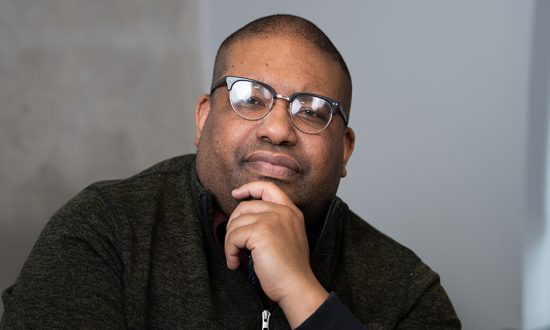Dr. Williamson has taught at the college level for over fifteen years with six different colleges and universities including Fairleigh Dickinson University, New Jersey City University, and Nyack College. For 5 years, Dr. Williamson was an Assistant Professor of English & Department Coordinator at Allen University. For over 4 years he was Assistant Director of Education Projects at Tennessee State University. Currently, Dr. Williamson is an Independent Researcher, Leadership Consultant, Private Tutor, and Dissertation Editor. He holds a B.A. in English (creative writing concentration) and an M.A. in English Literature, both from the University of Memphis. Williamson also earned a Ph.D. in Higher Education Leadership, Management, & Policy from Seton Hall University, and a leadership certificate from Harvard Graduate School of Education. Ernest is also an active member of the Academy of American Poets, the American Humanist Association, AAUP, ASCAP, Kappa Delta Pi International Honor Society in Education, Pi Lambda Theta Honor Society, the Golden Key International Honour Society, the National Association of Independent Artists, IHIQS and SENG.
The Covid-19 pandemic was an especially trying time for American college students. Pandemic-related anxieties coupled with school-related anxieties are now possibly endemic. How can American college students and college students around the world navigate seas of uncharted fears while navigating rivers of traditional scholastic anxieties? American colleges and universities are not designed to sustain shadows of dread nor are American college students designed to stand in said shadows. College teachers have and must continue to accentuate the power of positive relationships. That is to not only remind students of who they are and what they are called to do but to be active parts in their students’ collegiate lives.
In 2020, Dr. Mays Imad, a neuroscientist, and professor of Pathophysiology, listed over a dozen suggestions for maintaining mission-bond relationships during the pandemic. Email your students; reflect on the notion of rigor; continue to challenge and support your students, and use hopeful and optimistic language, were some of the strategies mentioned in her Inside Higher Ed article. Yes, the Covid-19 pandemic has negatively impacted collegiate academic performance but thankfully it has not severed the mission-bond between teacher and student. The mission is graduation and the bond is withstanding. Conscientiousness is requisite for academic success and survival in modern life. As new pandemics and other modern-day challenges emerge, educators must be prepared to create and sustain mission-bonds with students. How can educators be better prepared to do this?
First, educators, at all levels, must be C/E Literate (Current Events Literacy). C/E Literacy can be measured and should be measured. How much do our teachers really know about what is going on in our world, country, and immediate localities? School Principals and even College Professors/Staff can be assessed once every two months.
Second, our educators must be patient. American college students are facing rapid unprecedented changes. Though adaptation is requisite, in today’s America, it is especially difficult for many of our college students. Educators must address students’ frustrations with resolution and patience. How? Say it. Tell your students that you understand or are trying to understand what they are facing. There were no iPhone calls or text messages to “worry” about during lectures in the early nineties. There was no access to “undetectable” automated homework purchases or “easier” ways to find “true love” via App download. Educators must meet today’s scholars where they are psychologically and socially in real-time in the real world.
Third, our educators must be firm. Perhaps prolonged internet usage is exhausting. Perhaps academic and future career attainment stress and eustress are fleeting due to the continued proliferation of online monetary and educational opportunities. Whatever the case, your class is your class. Students must respect the teacher’s duty to manage classroom structure and climate.
Finally, educators must value student diversity. For Americans, population diversification is our new reality. Immigration debates have no place in College Algebra classes. Regardless of political beliefs, college teachers must keep students first and value the mission-bond. The mission is graduation and the bond is withstanding. Diversity training involves or should involve learning how to maintain the mission-bond in face of changing student demographics. For me, diversity training begins with the written word. “Minor Feelings: An Asian American Reckoning” by Cathy Park Hong and “How the Word Is Passed: A Reckoning with the History of Slavery Across America” by Clint Smith are two wonderful reads for all College faculty.
Mission-bonds are extremely important and educators need to support their students. Former college students of mine have reached out to me for support and continue to do so. They are still my students and I cannot help but assist those who call. We know that positive teacher-student relationships can foster academic success. Possibly, said relationships can improve pedagogical instruction according to new research from the University of Missouri, Columbia: “Positive teacher-student relationships may lead to better teaching”. The mission is education and the bond is withstanding. All educators have much work to do. For the first time in three decades, the mean composite ACT score fell below 20. Secondary and tertiary grade inflations persist and challenge all semblance of academic integrity. In part, mission bonds depend on college readiness and above-board student evaluations. Conversations about the necessity of higher education are growing. “Is this the end of College as We Know it?” (WSJ) “College Degrees Could Become Obsolete” (Fortune: 2023). Headlines in prominent American periodicals such as these echo a far too familiar cry among many high school students. Students are thinking about all of this and they are probably thinking about said discourse in your classes. Teachers must adapt to the noise and maintain their mission bonds. Change is inevitable. Covid-19 is contagious. But success is much more infectious. Given the unprecedented challenges of global higher education, understanding the importance of the mission- bond cannot be overemphasized. I encourage all educators to attend the Relation-Centered Education Network conference, on June 15-17, 2023.




